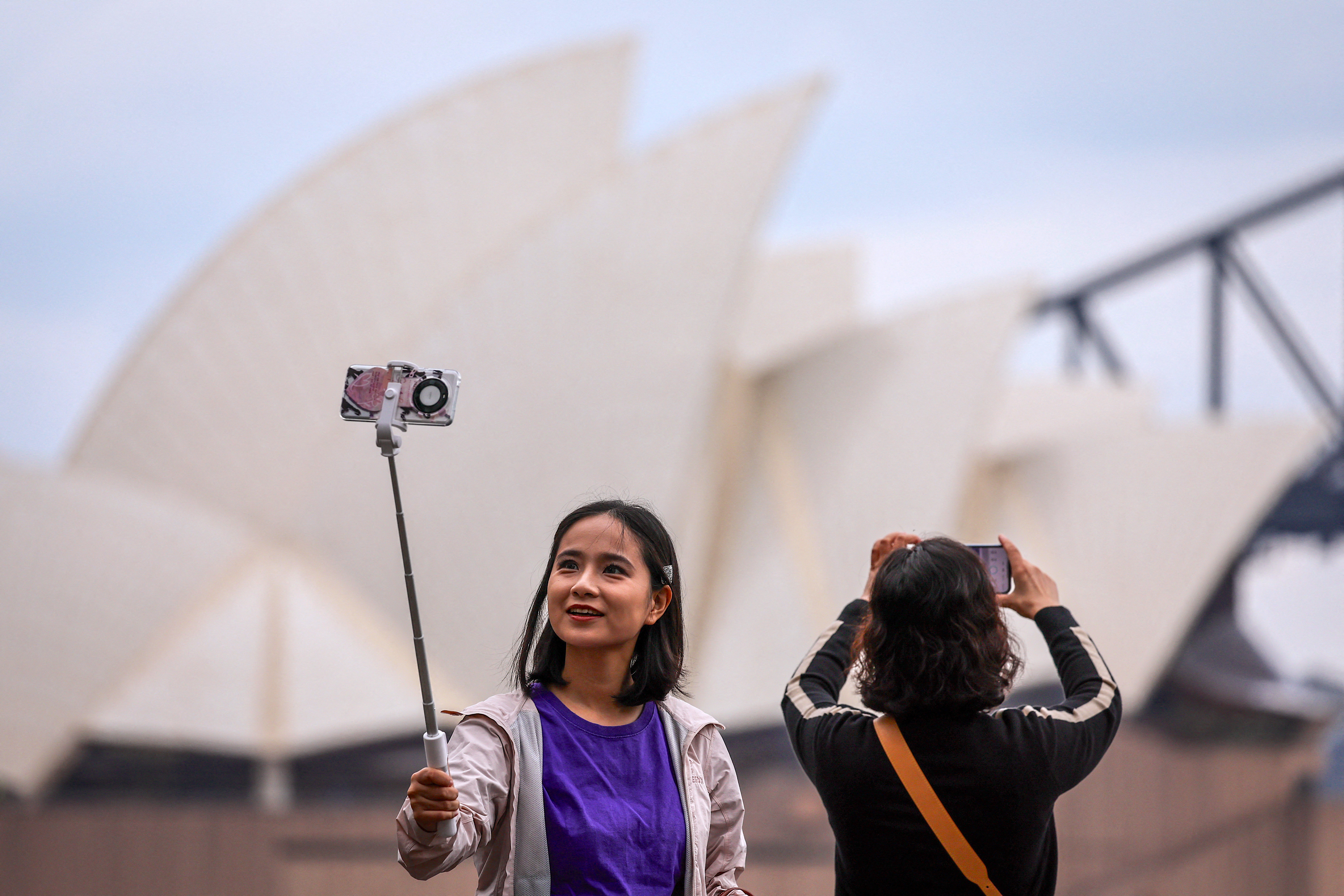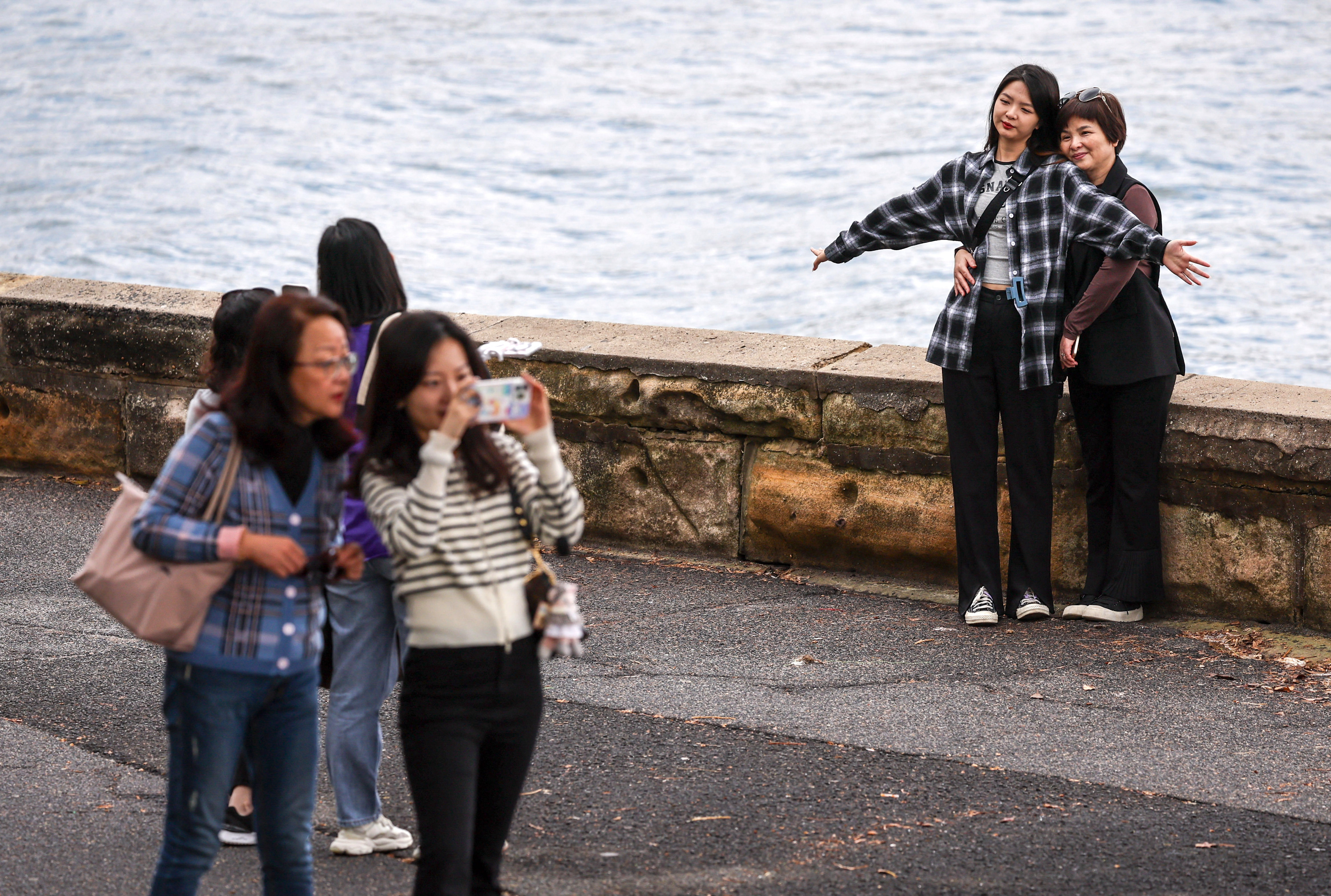
The Australia-China tourism sector is riding on post-pandemic growth, with travelers on both sides poised to tap increasing exchanges in the pillar sector.
Phillipa Harrison, managing director of Tourism Australia, the government agency responsible for attracting international visitors to the country for leisure and business events, told China Daily recently that the Chinese market is a major bright spot for the industry.
“We are pleased to see Chinese travelers returning to Australia in growing numbers. Over the past 12 months we have welcomed more than 935,000 Chinese travelers to Australia and we look forward to welcoming many more this year,” she said, adding that there was a “significant influx of travelers from China to Australia” for the Chinese New Year holidays at the start of the year and expressing the hope that the trend continues.
“The major drawcards for Chinese travelers have always been Australia’s wide open spaces, our unique wildlife and the chance to see the best beaches in the world, and that remains the case today,” she said.
ALSO READ: Wang: Restored stability in China-Australia ties benefits both sides
“We are also seeing a trend that many Chinese travelers would love to have authentic local experience, to interact with the friendly locals, which Australia is very strong at,” Harrison said.
Paris Miller, national coordinator at the Australian Tourism Export Council, the peak industry body representing Australia’s tourism export sector, told China Daily that “the China market is very important to be established and continued”, with firm Australia-China ties helping to spur exchanges and many opportunities on both sides.
Those include workshops and trade missions “to establish main partnerships and gain the confidence and resilience for the China market for products and services”, said Miller.
Australia’s international tourism sector continues to recover following the global disruption from the pandemic, with annual international visitor expenditure forecast to exceed pre-pandemic levels, before increasing to A$50.7 billion ($32.6 billion) by 2028, according to Tourism Research Australia, a branch within the Australian Trade and Investment Commission.
International visitation to Australia totaled 7.6 million trips in the year ending December 2024, branch figures showed.
Chinese travelers in the same period, with 829,000 trips or 62 percent of December 2019 levels, made up Australia’s second-highest international visitor market after New Zealand travelers’ 1.3 million trips.

Tourism Australia’s Harrison added that the challenge of aviation capacity experienced by the sector in recent years on both sides has taken time to rebuild, but there is now “excellent capacity between China and Australia”.
There are now 171 flights a week from 14 Chinese cities to Australia, she said, with Chinese airlines partners who “graciously add even greater capacity” during peak times like the Chinese New Year.
ALSO READ: Ties between Australia, China 'back on track'
“Cooperation between our sectors is important which is why we work closely with our partners in China,” she said. That includes strong and long-lasting partnerships with Air China, China Eastern Airlines, China Southern Airlines and other carriers, Harrison said.
A representative from China Eastern Airlines Sydney office shared that China Eastern Airlines’ capacity share between China and Australia increased by approximately 6 percent in 2024 compared to 2019.
China last year extended its visa-free policy for Australian passport holders’ stay from 15 days to 30 days, a move that has further fueled the interest and travel uptrend.
Liu Dong, director of the China National Tourist Office in Sydney, told China Daily that the visa-related moves have a significant effect on promoting inbound tourism for China from Australia.
ALSO READ: Movie fest in Australia opens doors to China cooperation
“The number of people traveling to China for business and visiting relatives has also increased significantly,” he said.
Liu added that Australian travelers’ familiarity with China’s tourism resources, products and routes can be raised to build on the improved air links and other services.
“We must establish close ties with local travel agents and encourage them to develop products suitable for Australians to travel. We must also implement incentives for travel agents to stimulate their motivation to travel to China,” he said.
Personalized, experiential, and immersive tourism is gradually becoming the mainstream with a travel mode that pays more attention to in-depth experiences that resonate closely with tourists, Liu said.
READ MORE: China, Australia laud improvement in relations
Amid those priorities, he said, efforts are being stepped up to promote China’s ice and snow tourism offerings, with Australian travel agents visiting Northeast China’s Jilin and Heilongjiang provinces and their Chinese counterparts taking part in related industry events, he said.
Australian travel agents like Yuri Cherniavsky are already tapping the latest industry trends and opportunities.
Cherniavsky, 66, runs a local travel agency and takes small groups of friends and tourists to China. His next trip is to Harbin, Heilongjiang’s provincial capital, with a group of eight people.
Dion Woo, vice-president of the Asian Australian Business Council Inc, a nonprofit group promoting business community networks, said at a recent industry event for travel to Sanya, a popular tourist spot in South China’s Hainan province, that its attractions such as beaches, golf courses, local cuisine and increasingly convenient air links are poised to become a big draw for Australian travelers.
“For me Sanya is more than just a beautiful destination, it’s a place of connection … to a culture that is both different and familiar at the same time,” Woo said.
Contact the writers at xinxin@chinadaily.com.cn


